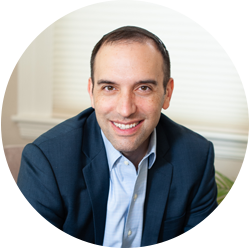Dear Friends,
I hope your High Holidays have been meaningful, joyous, and grounding as we enter a new year that continues to be more challenging and unpredictable than we hoped. The chance to sing and pray together with my community (outside, wearing masks) was, for me, an uplifting reminder of the enduring strength of human connection and Jewish tradition.
In spite of the crazy rhythm of this time of year and the short turnaround, I love the transition from Yom Kippur to Sukkot, the pilgrimage festival named after the booths or huts — which is the literal translation of “Sukkot” — in which Jews traditionally sit, eat, and dwell throughout the weeklong holiday.
The spirituality of the High Holidays is reflective and introspective, shining a bright light on us, our actions and our inner lives, and the ways that we need to change. It can feel like a year’s worth of therapy and self-help squeezed into 10 days. Then, as the sun sets on Yom Kippur, what do we do (other than eat, of course!)? We immediately go outside and build a sukkah. We transition from reflection and prayer to the concrete, physical act of building.
What a metaphor for the way we are meant to live our lives. We must do the inner work to take responsibility for who we are and how we act in the world. And then we need to act, to do something, to bring our learning, prayer, and self-improvement into the world in a concretized, embodied form.
Building the sukkah is a Jewish version of “just do it.” The physical act of erecting a structure can feel cathartic after Yom Kippur. It gives me a sense of accomplishment and completeness after focusing so much in past days on the ways that I have — and will always — fall short.
The transition to Sukkot also reminds me of the paradox of Jewish power. In that spirit, I want to reshare a piece that I wrote for this new year which appeared in the Jewish Journal. Here’s a short excerpt:
Jewish ethics and theology do not glorify power but neither do they vilify it. They demand of us that we accept and honor our power by balancing it with reverence and humility; that we do not wield our power over others to our own benefit, but rather use our power to better the lives of others and, ideally empower others to do the same. A thriving, vibrant, diverse Jewish community that is engaged with the world is one that both claims and wrestles with its own power.
The High Holidays force us to acknowledge, claim, and confront power and our agency — we are actors, even creators in this world. Building a sukkah with our own hands is an extension of this.
And yet, the sukkah itself is intentionally impermanent, permeable, and susceptible to the forces of nature. It is covered only with natural materials to remind us that our covering and protection is not “man-made.” Yes, we built it ourselves. And, this simple hut reminds us of our vulnerability — we need to build and act and do all we can to improve our world, yet we are not in total control of our lives. I find that both humbling and joyously liberating.
This is also the spiritual foundation of our ethical responsibility for one another. Realizing that “there but for the grace of God go I” can inspire us to share our bounty and our blessings with others, especially those who, at this time and for whatever reason, are less fortunate than we. I know how many in our community have internalized this message, as I witness your extraordinary, humble generosity every day.
Shabbat Shalom and Chag Sameach — wishing you a joyous festival and start to the new year,
Rabbi Marc Baker

About the Author
CJP President and CEO Rabbi Marc Baker is an educator, writer, and leadership mentor who is devoting his life to Jewish learning and building Jewish communities.
